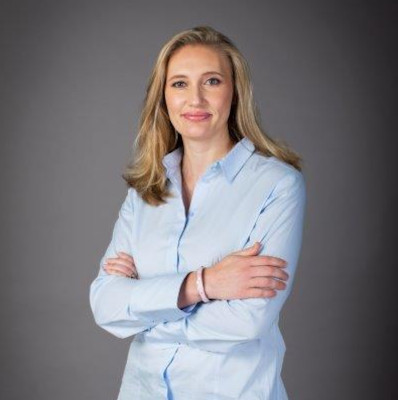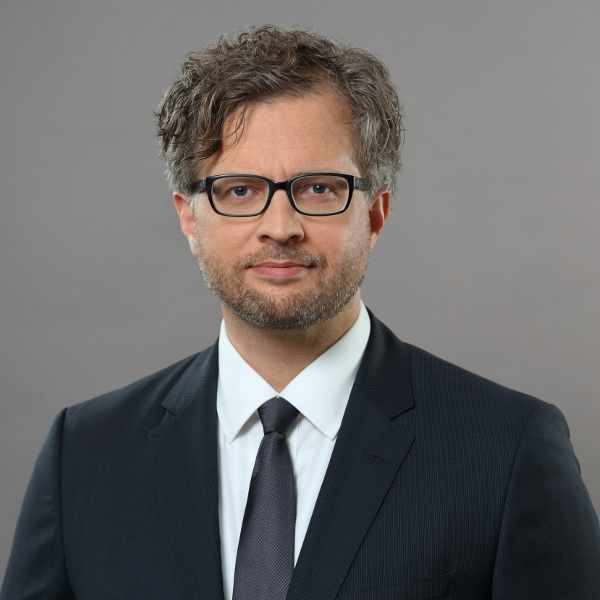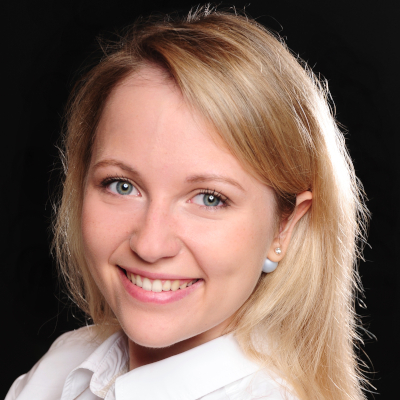
The decentralized structure and automated operations of decentralized autonomous organizations (DAOs) raise complex questions about the determination of applicable law, corporate status, and external actions that cannot be adequately answered using classical theories. This article draws up the different current legal possibilities for structuring DAOs.
Mienert, How can a decentralized autonomous organization (DAO) be legally structured?, LRZ 2021, Paragraphs 336 - 367.

- Dr. Jeanne-Mari Retief
- Attorney, Calibrics
This article is a summary of the results of the workshop held on 24 March 2021, which took place as part of the LEGAL LIVE 2021 – the Virtual Exhibtion and Congress for Law and Compliance.
Zitiervorschlag: Retief, LRZ 2021, S. 139, [●]
LEGAL REVOLUTIONary is a law journal dedicated to addressing the digital transformation of the law.
First, I would like to introduce the Lawtech Market in Brazil by talking about some impressive numbers of the judiciary in Brazil. We have more than 1.200 law colleges and more than 1 million trained lawyers. For this reason, it´s necessary for a lawyer to stand out in the crowd. There are double the amount of lawyers then there are accountants or doctors, approximately 536 to 453 thousand respectively. We have more than 100 million juridical processes. It doesn´t make sense to spend 1.3% of GDP with litigation.
The legal tech industry has grown to be one of the most attractive and lucrative sectors over the last few years. The arrival of digital products has ushered in software applications and automation tools that reduces the huge work-load of law firms, permitting lawyers to focus on important tasks that drives business value. Book Moore, founder of My-virtual lawyer spoke about the benefits of automating legal practice at an impressive interview conducted by the American Bar Association.
“Automating your law practice can drastically improve your firm. We don’t take the human element out of our practices, but we spend less time on menial task, and more time on things that require our skills and expertise”.
- Details
The legal industry is one of the oldest and most mature industries in the world. Centuries ago, the legal system used to be a simple case of right and wrong. However, the industry has since grown to accommodate our ever-changing society. When we look at today's world, we see that digitization has taken over. However, the legal industry is still a bit slow to move away from its dependency on paper workflows. That said, since the introduction of blockchain technology1 to business, there has been a need for lawyers in the blockchain ecosystem. Top businesses like IBM, Facebook and PwC advertise positions for blockchain-based lawyers constantly. This is an indication that there are significant use cases for blockchain in the legal industry.
According to a research report2 on legal firms, a total of 41% will integrate the blockchain in transactional legal services, while 21% will use it for business support and the remaining 31% for high-value legal services. These numbers are proof that there has been a shift from the paper-centric system. Blockchain technology is a transparent, immutable and secure distributed ledger that will enable lawyers to record and solve various types of legal matters. It could provide the legal system with multiple use cases including intellectual property rights, smart contracts, land registry, supply chain, chain of custody and litigation and settlements among others.
In contrast to purely legal professional advice, legal coaching is the accompaniment and support of the client by an experienced lawyer or attorney according to the quality standards developed by the professional associations for coaching, with a focus on the interests and needs of the client. It increases the lawyer's competence in communication skills and conflict management and thus relies on soft skills. However, unlike the additional training in mediation, the decisive advantages are that the lawyer does not lose his partiality and thus not his mandate and that it can be applied both as a complete coaching process and selectively in the mandate.
Trackers use a number of different methods, such as browser cookies, fingerprints, IP-addresses and so forth, to track the behaviour of Internet users. They collect data on users and aggregate them into profiles, which can then be used as a basis for targeted advertising. Before the GDPR became applicable on 25 May 2018, sec. 15 para. 3 German Telemedia Act allowed providers of telemedia services to create pseudonymous user profiles for the purpose of advertising, market research or the adequate implementation of telemedia services. However, since 25 May 2018, the data privacy provisions in the German Telemedia Act are no longer applicable. As the ePrivacy Regulation is still under discussion, the lawfulness of online data processing is currently governed only by the GDPR.
Since the blockchain technology was introduced as the underlying architecture for the cryptocurrency Bitcoin in 2008, it has become a hot topic and subject to numerous studies not only in the payment industry but in almost every industry.
Zitiervorschlag: Friehoff, LRZ 2020, S. 305, [●]
Individual mobile solutions lay the groundwork for satisfied clients and accelerated business.
The following article outlines how to utilize the problem-solving framework of human-centered design to create meaningful new interventions that increase collaboration and help lawyers integrate a human-centered approach effectively into their legal work.
Zitiervorschlag: Schlaepfer, LRZ 2021
Before the European General Data Protection Regulation went into effect, seemingly everyone was talking about the pending requirements and potential penalties. Requirements such as the “right to be forgotten,” data pseudonymization, privacy by design, oversight of data processors, appointment of Data Protection Officers, readiness assessments, data breach disclosure requirements and concerns about fines up to 4% of annual global turnover garnered much attention. Now, most lawyers, technology experts and corporate leaders fall into one of four categories: sufficiently compliant, behind schedule, unconcerned or engrossed in responses to Data Subjects. While some believe they are in compliance with all of the substantial requirements to protect personal data, others are scrambling because their initiatives are behind schedule. Moreover, a few business leaders have decided to chance using a minimally compliant strategy by not significantly investing in initiatives such as data pseudonymization or simply hiring a third party representative to act as their Data Protection Officer; and taking a “wait and see” approach to how the GDPR is leveraged by Data Subjects and enforced by authorities. Meanwhile, an increasing group of companies are contending with a growing number of access, deletion and remediation requests from Data Subjects
An introduction on how to set, measure and achieve KPIs to reduce and improve visibility of external legal spend.
Arbitration and digital transformation seem to be a perfect match. Especially during the current challenges the legal world is facing, arbitration has proven to be a reliable method to continue ongoing and initiate new disputes, to stay connected virtually and to keep learning through a variety of webinars. The rising use of virtual hearing centers and the switch from physical to virtual hearings is only one of the few adaptations we have seen recently. But, why is it that arbitration goes hand in hand with digital transformation and what are some of the down- and upsides when the use of technology expands significantly?
The following gives a brief response to these questions: Firstly, the flexibility and adaptability of arbitration is a key element of international arbitration and the parties' autonomy is inherent to the conduction of the arbitration (see section 1). However, when using new digital tools or new technologies, it is not the fanciest tool that wins. Rather, the one that provides a benefit to the practitioner and addresses the respective needs in each individual case (see section 2). Besides making the conduction of an arbitral proceeding (hopefully) more effective, digital transformation also supports diversity in international arbitration and plays a vital role in advocating for equality (see section 3).
Blockchain technology and the General Data Protection Regulation (GDPR) have both received considerable media attention. The GDPR was created against a backdrop of centralized data processing and does not take decentralized approaches such as blockchain into account. Accordingly, blockchain protocols and implementations pose significant challenges to the application of the GDPR. Notwithstanding, blockchain technology can also be seen as a means of data protection.
This three-part essay explores the application of the GDPR to blockchain-based data processing. Part one deals with the question of determining the data controller in blockchain systems because numerous responsibilities rest upon the data controller under the GDPR. This regulation is based on the assumption that there is always a data controller behind any processing of personal data. However, the data protection concept of ‘control’ does not accord with very notion of decentralized data processing.
On February 4th, 2004, from his dorm room surrounded by empty pizza boxes and beer bottles, Mark Zuckerberg launched thefacebook.com. We know the story that follows, one of a young prodigy who, through their intellect and initiative, created a service that changed the way we communicate. We praise characters like Zuck, Bezos, Larry & Sergey; as being modern figures of enlightenment. These individuals transformed big ideas into code that ended up in the hands of millions of people across the world, increasing standard of living whether it be through communication, access, or knowledge.

- Sven Bösing
- Attorney-at-law - Associate, Schalast Rechtsanwälte & Notare

- Dr. Jörg Kaufmann
- Attorney-at-law - Counsel, Schalast Rechtsanwälte & Notare
Part 1 of this three-part essay explores the foundations of the lengthy process of the digitalization of general meetings of stock corporations. These foundations go back to the beginning of the Internet and form the basis for understanding the current Covid-19 regulations.
Citation suggestion: Kaufmann/Bösing, LR 2020, S. 209, [●], www.lrz.legal/2020S209

- Ignaz Füsgen, EMBA
- Geschäftsführer, smartvokat

- Maria Govis
- Legal Transformation Advisor | smartvokat
‘Legal Service Portfolio Management’ empowers corporate legal departments to address their most pressing strategic business imperatives, such as velocity, resilience, and agility. Analogies drawn from other disciplines, such as Finance, IT and Marketing, help to understand the opportunities and potential of the portfolio concept and offer a roadmap for legal teams. This article is meant to open the dialogue on the advantages of service portfolio approach for the management of corporate legal function.
Zitiervorschlag: Füsgen/Govis, LRZ 2021
Smart contracts got a lot of hype. It was promised that they could replace banks, notaries and even the judicial system. Over time, it turned out that they can’t.
Excitement changed to caution. Technical limits, their security, and legal issues are getting more and more attention. For example, there’s a great summary of those in Jimmy Song’s article, The Truth about Smart Contracts[1] (which I really recommend).
At the same time, smart contracts are a great technology with serious potential. They can change the legal reality, the work of lawyers and the life of the business.
So, let’s see what they actually are, how useful they can be for the actual business and what they still can’t do. (To keep the article relatively short, I assume that everybody’s familiar with a general concept of smart contracts and myths related to them.)
At first, the legal profession may seem more immune to this trend, as it is notorious for using complex language, incomprehensible to all but legal experts. Recently, however, it is becoming clear that AI is poised to make headway in this profession as well. Several studies have considered the potential areas in which AI technology can be beneficial and how this could transform the role of lawyers in delivering legal services.
While it is apparent that AI will be able to perform some legal tasks, it is universally assumed that the quality of the work will be inferior to that of humans, especially when compared to professional lawyers. Training, experience, professionalism, and tradition have convinced lawyers - and many of their clients — that manual labor ensures the best outcomes. But is it really so? Do trained lawyers necessarily outperform machines?
In 50 years Google will answer any legal question immediately: Bank: „Google, the Securities Companies Compensation Fund sent me a contribution notice for 2070 in the amount of 43.5 million euros. Is that contestable?“Google: „Yes. The correct contribution amounts to 8.3 million Euros only.“Bank: „Thank you, Google! In 2019 my law firm charged 27.000 Euros for such an answer.“Google: „I know. That´s why lawyers are extinct since 2065.“

- Sven Bösing
- Attorney-at-law - Associate, Schalast Rechtsanwälte & Notare

- Dr. Jörg Kaufmann
- Attorney-at-law, Associate | Schalast Rechtsanwälte I Notare
Part 2 of this three-part essay deals with the current German Covid-19 regulation on general meetings of stock corporations with a view to the ongoing digitalization process of general meetings.
Citation suggestion: Kaufmann/Bösing, LR 2020, S. 246, [●], www.lrz.legal/2020S246
Technology has the potential to reshape the legal-landscape so that average wageearners can access legal advice using an application.

- Sven Bösing
- Attorney-at-law - Associate, Schalast Rechtsanwälte & Notare

- Dr. Jörg Kaufmann
- Attorney-at-law - Counsel, Schalast Rechtsanwälte & Notare
Part 3 of this three-part essay deals with the question of how German lawmakers may regulate general meetings of stock corporations in terms of the use of digital technologies after the Covid-19 pandemic has ended. This article is a continuation of the series of articles "Digitalization of General Meetings of Stock Corporations" (Part I and Part II).
Citation suggestion:Kaufmann/Bösing, LR 2020, S. 262, [●], www.lrz.legal/2020S262
A law firm can build its reputation based on what kind of clients and deals it can serve and the bigger the clients, the higher are the risks with the deals they bring on the table. When you sit with your client on one side of the table and on the other side you have the buyer/seller of a company and their law firm and financial advisors, you definitely do not want to lose the leverage you have (or the leverage you helped your client find) to win.
The industry of law has been actively evolving in the last three years. Relying on the best practices of foreign colleagues by supporting innovative legal projects, such as the Future Law Innovation Program from the Singapore Academy of Law Russia has created various tools to support legal startups by annually hosting thematic international conferences and the number of innovative companies are constantly growing. One of these programs, Skolkovo LegalTech, an innovative hub for LegalTech startups based on the Skolkovo innovation center, became part of the Asia-Legal Innovation and Technology Association, expanding its partnership and interaction boundaries.
On May 5, 2020, a new draft of the IT-Sicherheitsgesetz 2.0 (IT Security Law 2.0, “IT-SiG 2.0”) was published, which has already been the subject of several legal discussions. In summary, the legislator intends to make changes and extensions to multiple legal acts, including Gesetz über das Bundesamt für Sicherheit in der Informationstechnik (Federal Cyber Security Authority Law, “BSIG”), Telekommunikationsgesetz (Telecommunications Law, “TKG”), Telemediengesetz (Telemedia Law, “TMG”) and Außenwirtschaftsverordnung (Foreign Trade and Payments Ordinance, “AWV”).
Zitiervorschlag: Kipker, LRZ 2021, S. 65, [●]
At first glance it may look as though trust and technology don’t go together at all. Yet trust is a critical component for firms that want to build longstanding and lucrative client relationships – and technology can be deployed to help build it. This article explaines exactly how.
It might not seem as though trust and technology are complementary. After all, isn’t technology just a hard fact, while trust is an elusive, and perhaps also a fragile, emotion – hard to build, easy to destroy and difficult to measure?
Throughout the globe, there is a reported rise in the demand for methods and strategies to increase productivity, profitability, and customer reach in the business of law.
Zitiervorschlag: Magubane, LRZ 2021, S. 126, [●]
Legal document automation is not scary. Automating the creation of documents is not intended to replace, minimise or threaten what lawyers do. Lawyers always have been, and always will be, the guardians of legal documents that form the basis of all business. But by automating certain parts of the process, they can be liberated to focus on elements of the role that add real value.
The German and European legislators are pushing ahead with the digitization of more and more areas of the judicial system.
Is your legal technology start up looking for funding but has a hard time? I’m presenting you EU H2020 the world largest investment fund.
Die Welt der EDRA Media
Die LRZ erscheint bei der EDRA Media GmbH.
EDRA Media ist ein innovativer Verlag,
Veranstalter und Marketingdienstleister auf den
Gebieten des Rechts und der Medizin.
Gesellschafter sind die Edra S.p.A. (LSWR Group)
und Dr. Jochen Brandhoff.
EDRA MEDIA│ Innovation, Sustainability, Resilience

